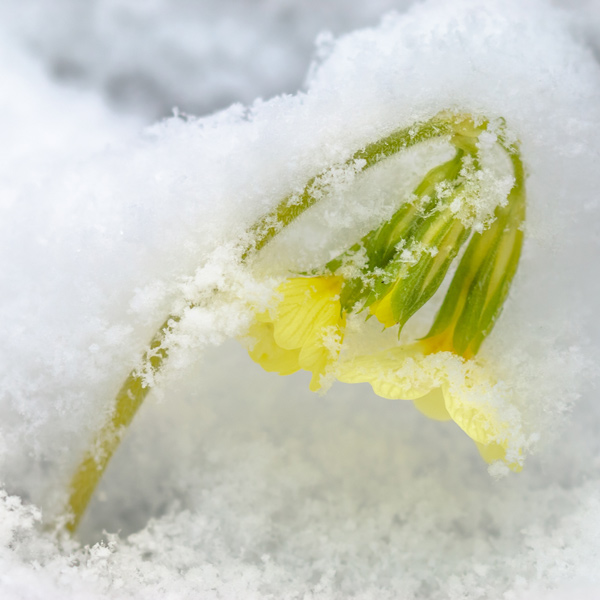“Our life is March weather, savage and serene in one hour.” – Ralph Waldo Emerson
It’s early March. Daylight hours are stretching, and some daring primroses have opened yellow rosettes in more sheltered spots of my garden. Northern Switzerland experiences four defined seasons that are typified by long, cold winters and humid summers that can run from May through September. Wedged in between them, spring and autumn are shorter and less clear-cut seasons that vary in length from year to year. Most years, April is our month of reliable spring warming, whereas October brings true autumn, when warm days and tumbling night temperatures trigger a vibrant display of changing leaves.
Though March marks the beginning of spring meteorologically speaking, it heralds an unpredictable few weeks. Not quite winter but not yet spring, this is a liminal time—a nexus between these two seasons. The weather is volatile and on the move: one day warm, the next day snow. No wonder it’s named after Mars, the god of war. March is a month when seasons do battle with each other.
This mad March weather is a challenge for those of us who live in Switzerland, because central heating systems have an outside thermometer that regulates the temperature of the water in circulation. Why the Swiss design them like this is a mystery to me. These systems are slow to respond to rapid fluctuations in outside temperatures, which often leaves buildings under heated in March and over heated in April. I guess that’s why log-burning stoves are so popular here. They come into their own in March, when temperatures can veer suddenly from warm to decidedly chilly.
Personally, I don’t care much for early March. For me, it’s a study in conflicting identities. There is tension in the weather, which makes me agitated. Maybe I resent being shaken out of my winter hibernation—those cozy, short days spent reading or writing indoors. Or perhaps it’s spring fever: the frustration of biding my time for the full force of spring to arrive so that I can enjoy everything the outdoors in Switzerland offers. That’s the thing about liminal time. It is disruptive and unsettling, and I thank the stars that it’s only a temporary phase.

Stephen Chamberlain is the author of the fantasy novel Graëlfire. He draws inspiration from the impact of landscape on myth, and the association of liminality with the supernatural and magic. Stephen lives in Switzerland.




